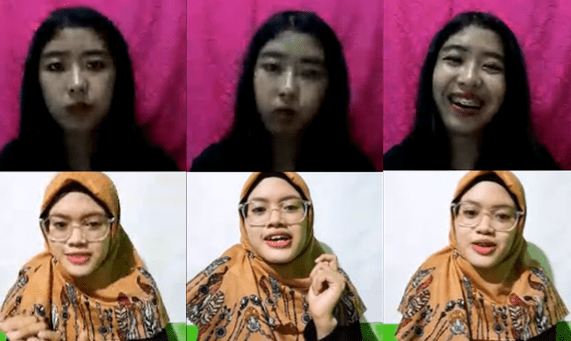
Yogyakarta, August 6th 2020 – Creative Hub Fisipol UGM held another #SmallTalk program on Instagram Live on Thursday (6/7). In this sharing session, C-Hub collaborated with Rumah Harmonis (Talent Batch 3 of Creative Hub), as the speaker of this topic which titled as ‘Depressed? Just Confide!’. This event lasted from 04.00 p.m. to 05.00 p.m.
Rumah Harmonis itself was one of the changemakers of Fisipol Creative Hub that was concerned about mental health issues. As a platform that also doubles as a confidant, Rumah Harmonis was a mental health facilitator that could reach all levels of Indonesian people’s economy. Established in 2018, Rumah Harmonis established by four students from the same major which did not have a psychological background, instead they were social and political students, specifically the Department of Social Development and Welfare. Rumah Harmonis first launched in 2019 consisted by 18 members. The reason for Rumah Harmonis establishment was due to the founder’s restlessness, who thought that BPJS still could not yet cover the patients who went to psychologists.
The cost of visiting a psychologist, which tended to be expensive, means that access to psychology is only enjoyed by the middle and upper economic class. Because of that, Rumah Harmonis presented their services to all levels of society without worrying about high costs. “If we see from Gunungkidul which have a high rate suicide, when we saw the data from psychologists, their depression reasons were because of debts and low income, from here we thought that we also need to pay attention to middle to lower economic classes,” Intan said. “We educated them so they want to see psychologists or counselors, and we made a space where all people from all economical backgrounds could access it and no need to be afraid anymore,” she added.
Even though she did not have a psychological background, Intan admitted that they have a team that supported the establishment of Rumah Harmonis. There was a catalyst team, they came from psychological major and had psychological backgrounds and their job was to make educational contents regarding mental health issues. There was also a psychologist advisor, a senior psychologist that always gave suggestions or recommendations regarding ethical codes of Rumah Harmonis product services. Other than that, there was also a creative team, marketing team, and IT team. They came from various backgrounds, from AMIKOM, Mercubuana, Indonesian Art Institute, Brawijaya University, UGM, and others. “The core team’s backgrounds varied, and did not come from psychology. but we are here to play a role so that Rumah Harmonis can still serve the community and embrace all levels of the community’s economy,” Intan said.
Apart from intensifying Rumah Harmonis to attract targets through social media, Rumah Harmonis also always held sharing or educational events regarding mental health issues through community visit or school visit programs. But, this pandemic forced them to change their concept and make it online. In the end, for a while, that program was changed to Rumah Harmonis Collaboration and in this August there were at least nine organizations that registered to collaborate to talk about the education of mental health issues. Uniquely, those organizations did not come from psychological background/mental health background, but from broadcasting, education, environment, etc. “When we asked about their reason, they said that mental health issues were a problem for everyone, not only those who come from a psychological background,” Intan said.
Mental health consultation service itself was divided into two parts, there was consultation with counselors or professional psychologists. In this pandemic, clients could consult through room chat, video call, and other online things and the time could be adjusted. But, when this pandemic ended, clients could consult face to face and could choose the locations freely, because Rumah Harmonis upheld flexibility. “They could meet with psychologists, but outside their offices, it was up to them if it was in the park or café, flexible. Because according to the mission of Rumah Harmonis, we could embrace all levels of the economy and provide flexible services,” Intan said.
With the flexible cost, Intan admitted that Rumah Harmonis just took 30% profit that was allocated to the education and etc. Even though they did not set prices, the consultations were served by the counselors which had been practically and theoretically tested minimum for one year by professional psychologists or advisors before they got accepted to serve consultations in Rumah Harmoni.
